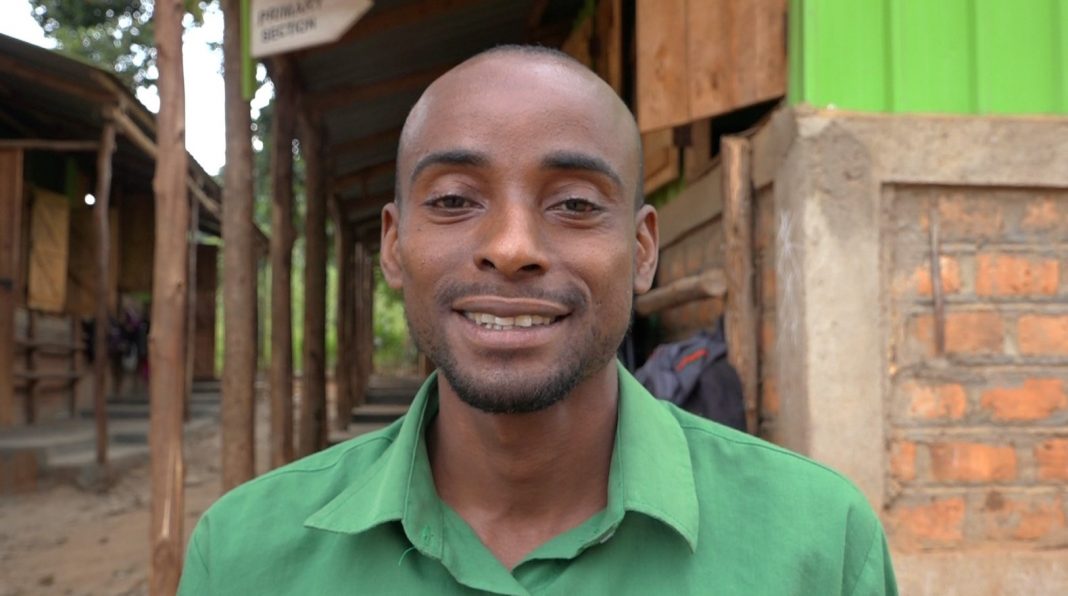By Ibrahim Bashir
Over the last few years working as a teacher I have undergone an amazing transformation in the way I teach. The changes have been in the things I do when I am in the classroom, the ways that I motivate the children and instruct them.
Before, I spent a lot of time expecting the children to just work from their textbook, reading and answering questions. I stood at the front of the class or sometimes just did marking in the corner. But now, after more training, I have a lot of interaction in the classroom, more discussion, more questions from them and from me as we go along. Lots of time for feedback. I believe you must be ready to try new things as a teacher, in what you do and how you do it.
When I joined this school, the first thing I did was to go on a residential training course, to spend time thinking and learning about the best ways to teach. Not what to teach but how to teach. Many teachers were there, those who had been teaching for many years and for just a few. We were looking at the different ways children learn and how a good teacher can make a classroom a more powerful place to learn. It was all so new and interesting to me.
I see the change in my pupils and know for sure I am a better teacher now because of the new approaches and techniques I have learnt. I can see it in the way the children respond to me.
One of the most effective teaching techniques I have learnt through the training sessions provided is known as ‘STRIVE’. This is an acronym where each letter stands for something that will help pupils learn. ‘S’ requires pupils to sit down and be attentive, so they can absorb all of the information in the lesson. ‘T’ requires pupils to track teachers with their eyes, preventing them from losing concentration and vital information. ‘R’ requires pupils to respond whenever they are asked a question, so that the teacher can acknowledge whether the pupil has understood what is being taught. ‘I’ requires pupils to inquire whenever they have any queries or may have a question about the content. ‘V’ requires pupils to visualise success so that they can visibly see the improvements in their work. Finally, ‘E’ requires pupils’ ears to be listening at all times, as this is the pathway to the brain.
Video Classroom behaviour has really changed:
I believe that all of my pupils are better able to learn their lessons due to the teaching philosophy I was taught in my training. It sounds so simple: narrating the positive, giving children time to think before choosing someone to answer, watching the whole room. But before I didn’t know all this and now I do. Through the training, I felt as though I was a student all over again.
Every couple of weeks the Academy Manager will come and watch me teach. She has much more teaching experience than me. She watches how I do the lesson, and then after that she talks to me about how I could do better. I also have a leadership and development coach who comes to the school and do the same thing. It gives me fresh perspective. This simple thing – ongoing feedback – has made me grow, over the years, to be the best I have ever been. Teaching is a precious skill that needs focus – I feel that more and more now.
Some children here have parents who cannot read and write, so it is up to me to teach everything. I can do it, and it is wonderful to see. Many children can now help their parents on their stalls or to read some little information. It is a change, we can all see that the children are learning new things and that they are excited for school to start and for my lessons.
How you work in the classroom is not just how you teach the lessons but also how you manage the classroom to get the best out of the children. I do not beat the pupils. If you beat a child, you put a padlock on their minds. No, it’s important to have discipline in other ways that are much better for the child and the whole class. Now, I have a strong relationship with my pupils because they have no fear to try.
Overall, the training and support has boosted my confidence and ability as a teacher. I feel stronger; that people are appreciating my work and that it is making a difference. I wish for all teachers that they could have my experience; so they know how to succeed. Teaching is a skill and we have responsibility, we need to be able to teach the best way possible and we need to be supported and to be helped to do that.
As part of the UN World Teachers Day activities, teachers around the world are sharing their stories of success, despite working in challenging environments. Teacher Ibrahim shares this story of personal development in Uganda, as part of the campaign #TeachersTransformLives.
The writer is a teacher at Bridge School, Yesu Amala







